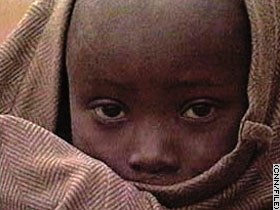It just baffles me to see how some Republican politicians can get away with almost anything these days to the point that it makes Italy look like a working democracy and Berlusconi like a champion of justice.
House Majority Leader Tom Delay is the second most powerful man in the U.S. Congress and turning out to be quite the role model. Showing more brass than brains, more moxie than morals, more insolence than intelligence, Delay has apparently adopted the credo, "If you can't beat the system, change it!"
Already under investigation for fundraising "irregularities" in Texas and manipulation of the makeup of electoral districts (‘gerrymandering’), Delay was further admonished by the House Committee on Standards of Official Conduct (the “ethics committee”) last September for having made an offer to endorse the son of a retiring Representative for his seat if he would vote in favor of his bill. As a result the House (Republican) leadership not only sacked the committee chairman, they also rewrote the committee’s rules, making future investigations more difficult by requiring the consent of a majority of its members for investigations. (new rules also limit the committee to 45 days to decide whether a complaint warrants investigation, and allows it to let the complaint die by taking no action.)
In the meantime, Delay is receiving still more scrutiny and possible charges for trips paid for by organizations registered as (Korean) foreign agents despite House rules that bar the acceptance of travel expenses from foreign agents. Under the new rules it has become almost impossible for an investigation to begin, so the Democrats have blocked the whole process in protest. A Democrat Representative (Rep. Howard L. Berman) has sponsored a resolution that would cancel the rule changes, saying that Democrats will not allow the committee to resume its work until the rules are rewritten.
"If you aren't going to create an ethics committee right, don't create it at all," he said. "Otherwise, it is a great farce of this body, not to mention the American people."
The legal-defense fund for Tom Delay, which has dramatically expanded lately, includes two lawmakers who were placed on the House ethics committee this year, a corporate donor indicted in the Texas investigation, and a Texas political-action committee formed by DeLay that is the focus of the criminal inquiry...but donations continue to flow.
In case you are not familiar with Delay’s political views, he has a made a name for himself in the 80s for attacking the National Endowment for the Arts and the Environmental Protection Agency. He is a ‘Christian’ fundamentalist, and furthermore a strong 'Christian' Zionist who is opposed to land concession by Israel which made him popular in Israel’s far-right National Union Party when he made a speech at the Knesset. His position makes the Likud [Israeli Conservative Patry] look liberal.
And yes, he is the second most powerful man in the U.S. Congress! Quite the role model.




